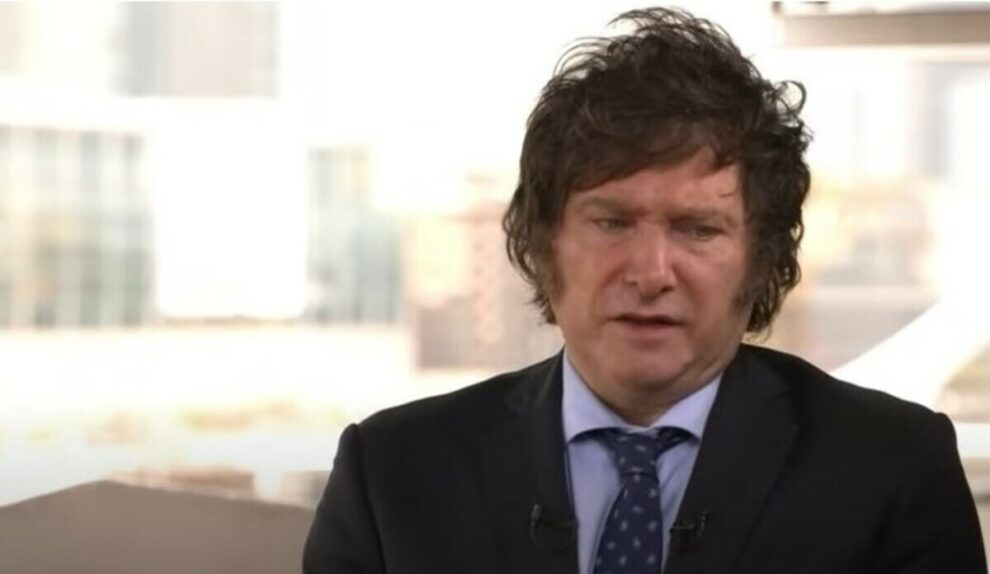Argentina’s libertarian new President Javier Milei slammed socialism as a threat to the West in a fiery speech to global political and business elites in Davos on Wednesday.
In his maiden trip abroad as president, the self-styled “anarcho-capitalist” took shots at “social justice” and “radical feminism” while praising entrepreneurs as “heroes” at the World Economic Forum’s meeting in the Swiss Alps.
“I am here today to tell you that the West is in danger,” Milei said, touting free-market capitalism as the only viable solution for poverty.
“It is in danger because those who are supposed to have to defend the values of the West are co-opted by a vision of the world that inexorably leads to socialism and thereby to poverty,” he said.
The 53-year-old Argentine leader, who flew to Switzerland on a commercial plane as part of his austerity image, said during his flight that the forum was “contaminated” by a socialist agenda.
But Milei, who has drawn comparisons to former US president Donald Trump, was full of praise for entrepreneurs during this speech.
Ditching his rock star-like leather jacket for a more sober suit and tie, Milei hailed business leaders as “heroes” who should not be afraid of the “political caste” and “the parasites that live off the state”.
“The state is not the solution. The state is the problem,” he said.
“You are the true protagonists in this story. You should know that from now on, you can count on Argentina as an unconditional ally,” Milei added, ending his speech with his battle cry, “long live freedom, damn it!”
Some in the audience gathered to take shake his hand and take pictures as he left the congress hall.
Later Milei told reporters that he came to Davos to “plant the ideas of freedom, which are the ideas that bring progress and put an end to poverty”.
He added: “We came to warn about the risks of socialism which is the machine to impoverish and kill people.”
Milei also held talks on thorny issues during his visit, meeting with the IMF chief on the country’s debt and with British Foreign Minister David Cameron over the disputed Falkland Islands.
– ‘There’s no money’ –
As an outsider candidate with an ageing rock star look, Milei rode a wave of anger over decades of economic decline to win the December election.
Under the punchline “there’s no money”, Milei vowed to drastically cut spending in Argentina, where inflation exceeded 200 percent last year.
He has since devalued the peso by more than 50 percent, cut state subsidies for fuel and transport and reduced the number of ministries by half.
When introducing Milei, WEF founder Klaus Schwab said that while some describe the new president’s methods as “radical”, he has introduced “a new spirit to Argentina, making Argentina much more related to free enterprise, to entrepreneurial activities”.
Milei met later with International Monetary Fund chief Kristalina Georgieva.
Argentina owes $44 billion to the IMF, which has welcomed Milei’s decision to eliminate price controls on some goods that were introduced by the previous government.
After the meeting, Milei told AFP that had an “excellent” meeting with Georgieva and they would “continue to work together … to find a solution”.
Georgieva, who had said Tuesday that the Argentine government was making progress, also said their meeting went “very well”.
Before his speech, Milei met with British Foreign Minister David Cameron and the pair discussed the Falkland Islands, the British-held territory which Buenos Aires and London went to war over in 1982.
Using the Argentine name for the islands, Milei said the meeting was “excellent” and that they “talked about deepening trade ties and we put the Malvinas on the agenda”.
